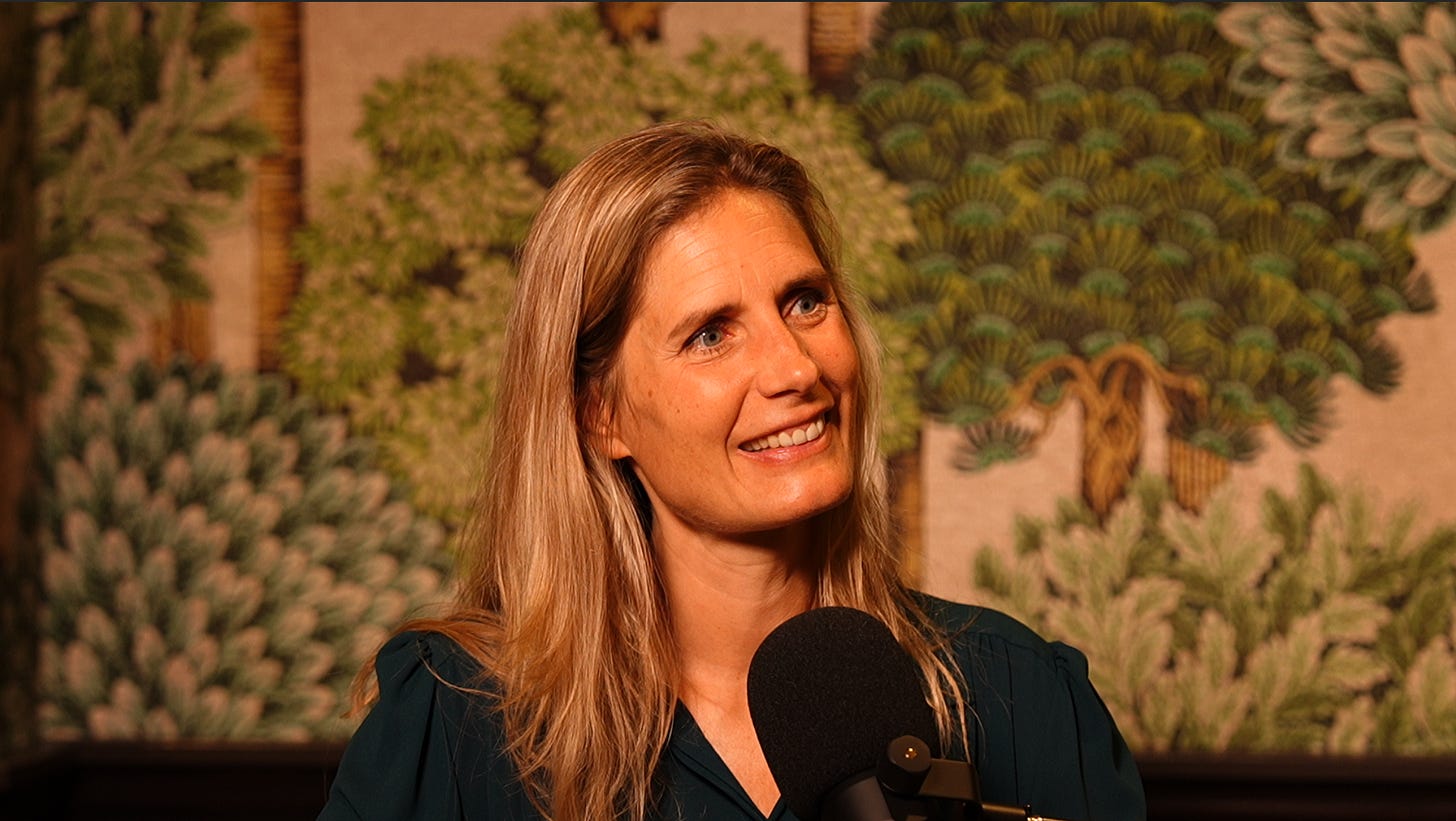Managing for enjoyment: redesigning legal leadership
New Beyond Billable podcast episode with Marloes ter Huurne
When Marloes ter Huurne took the stage at Lexpo 2025, she didn’t bring a tech demo or a flashy product pitch. Instead, she brought a human lens on legal transformation. As a behavioral expert and advisor to legal professionals, Marloes challenged the crowd to rethink how change really happens. Not through fear or force, but through trust, belief, and culture.
In our conversation, Marloes made a compelling case that AI and innovation won’t gain traction in the legal world unless firms address the psychological reality of their people. Lawyers, she points out, are trained to spot risks, avoid mistakes and aim for perfection. These qualities may serve legal work well, but they often get in the way of innovation. The mindset that protects clients can easily prevent progress. The real shift begins by moving away from external pressures like billable targets and focusing instead on intrinsic drivers such as autonomy, purpose and connection. In other words, enjoyment!
We also talked about the hidden cost of criticism, why self-belief is the cornerstone of performance, and how to design a work culture that actually supports learning, especially in an AI-driven future where junior lawyers won’t cut their teeth on grunt work anymore.
Here are some highlights from our conversation.
Psychological safety: Why openness beats silence
A researcher asked teams to report their mistakes openly, anticipating that comfortable teams would naturally make fewer errors. Surprisingly, the opposite happened—teams that felt safe and open reported more mistakes, while those feeling unsafe stayed quiet, appearing to make fewer errors. Yet, this wasn't about who made mistakes, but who talked about them. Teams that felt psychologically safe openly discussed and learned from errors, ultimately reducing mistakes. Silence, it turns out, hides flaws, but openness eliminates them.
The high cost of criticism
In legal training environments, feedback is often critical by default, but we underestimate its impact. Criticism can undermine three basic psychological needs at once: self-worth, belonging, and understanding. Without a foundation of trust, even well-meant feedback can feel like rejection. But when people feel seen and supported, they can handle sharp feedback without losing confidence. Start with trust, or risk breaking what you're trying to build.
The lawyer's most important tool
Your brain is your primary instrument, yet many legal professionals neglect its maintenance. As Marloes puts it, a gardener tends to his tools, and lawyers should do the same. That starts with the basics: sleep, minimal alcohol, and daily movement. Walking, in particular, isn’t just a cliché—it taps into how our brains evolved. Stress once triggered motion, focus, and alertness during hunts. Today, a daily 30-minute walk boosts circulation, sharpens thinking, and helps keep your mind fit for the job.
Listen to the full episode here: https://lnk.bio/PimBetist
Are you more of a reader? Find a condensed version of the transcript here.
If you have any questions regarding this episode, this newsletter or anything legal AI, feel free to reach out to me via hello@clayrichard.eu.


You may enjoy my page. Pieces from a burnt out lawyer:
https://lifestyleintegrity.substack.com/